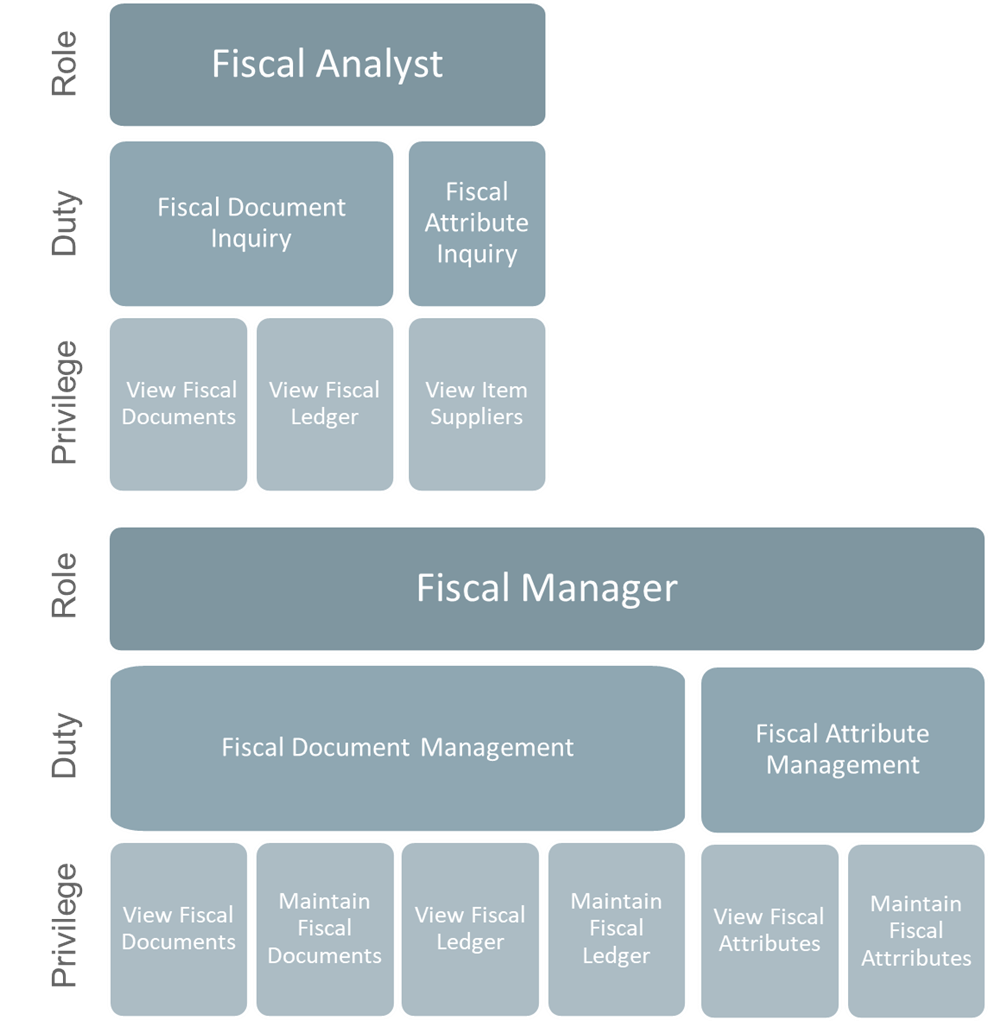2 Roles
Roles are used to classify users based on job responsibilities and actions to be performed in the solution. Using roles, a user’s access can be restricted to specific areas or functions within the system. Users must be associated with at least one job role in order to access the application and may be associated with several roles if desired.
For example, within Fiscal Management, a user with a business role of Fiscal Analyst may be able to perform only the tasks associated to the provided Fiscal Analyst job role profile such as viewing fiscal attributes. Whereas a Fiscal Manager might have access to the set of tasks that are related to the maintenance of fiscal attributes. While an Administrator will require access to all areas.

Roles Provided at Initial Setup
A default security configuration is provided with each application during provisioning and is intended to be used as a starting point as you define the roles that align to your business and users. The provided roles can be modified by adding or removing duties and/or individual privileges to adjust the access granted to the role, or the roles can be deleted completely. Additional roles can be created and can be mapped to desired duties or privileges. Administrator users can change the mappings of roles, duties and privileges. Details about how to manage these application security policies are available in Chapter 2, Manage User Security in the Merchandising Cloud Services Administration Guide.
There are four roles provided in the default security configuration:
Application Administrator
The Fiscal Management Application Administrator is part of a retailer's IT department responsible for maintaining and configuring the Oracle Retail Fiscal Management Cloud Service. Primary responsibilities include:
-
Maintain daily operations, such as daily batch processes of the application.
-
Supporting end-users and providing the first level of support for the application.
-
Applying patches and upgrades to the application regularly.
-
Troubleshooting and resolving product issues.
-
Setting up users and security privileges for the application.
Fiscal Analyst
Responsible for analyzing fiscal information of an area within the enterprise to assist in decision making. This includes:
-
Supporting the fiscal team with data from fiscal attributes and documents.
-
Monitoring document generation and receiving, although not allowed to perform actions.
Fiscal Manager
Responsible for the fiscal processes of a retailer's business, which includes making sure that all fiscal operations are running smoothly, issues are reported timely and accurately, fiscal reporting data is available and consistent. This includes:
-
Ensuring fiscal document receiving and generation is working.
-
Ensuring fiscal attributes and fiscal setup data is correctly configured and up to date.
-
Ensuring in the timely resolution of vendor payment issues, including the resolving cost and other invoicing discrepancies.
-
Identifying risks and opportunity areas to the operations.